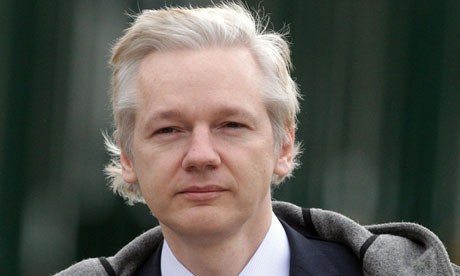
Ecuador’s Deputy Foreign Minister, Kintto Lucas, wants to talk to Julian Assange. Why? He wants the creator of WikiLeaks to hand over more than 1,300 cables that, according to Lucas, were produced by the U.S. Embassy in Ecuador, and that—according to the Vice-Chancellor himself—are in possession of the famous Australian hacker.
Lucas wants to make public all those cables because, he explained in an interview with Diario Hoy: “Then we will know that certain previous governments and their representatives were asking blessings from the U.S.”
The Vice Chancellor’s initiative is not the best example of what professional diplomatic practice should be.
Relations among countries are built within a framework of laws, treaties and international institutions created for that purpose. Using non-official documents, at times of dubious authenticity, delivered surreptitiously to the administrators of a web site like WikiLeaks will arouse the interest of journalists and academics, but will never favorably resolve a dispute with another country.
I suppose that the Chancellery authorities wish for Ecuador to define its relations with the United States in a more equitable and transparent manner. Will involving Julian Assange and WikiLeaks help Ecuador in this process? I doubt it.
Neither Assange—a 39-year old autodidact of Chinese and Irish ethnicity who hacked the Nortel phone systems—nor his Website are a model of legitimacy or balance. What at first was viewed as a novel venture that could promote greater transparency in the world is now regarded as a failed initiative that has wreaked havoc and confusion rather than real solutions for people.
The authenticity of the leaked documents is a major pending issue. Assange hoped that the Internet community would, like Wikipedia—the virtual encyclopedia where users enter or edit the information contained therein—undertake such an effort.
It is believed that the lives of many people are in danger because their name appeared in some published document. In this regard Assange has said that sometimes they contact those who are potentially harmed, but when this does not happen, the WikiLeaks team might have “blood on its hands.”
Assange is not interested in exposing facts in an objective and balanced manner—though in a euphoric moment, he boasted of having invented what he called “scientific journalism.” This hacker has said that the only thing that matters to him is to “expose injustice.” The problem is that Assange alone defines what is or is not unjust, no one else. Does that sound familiar?

Leave a Reply
You must be logged in to post a comment.